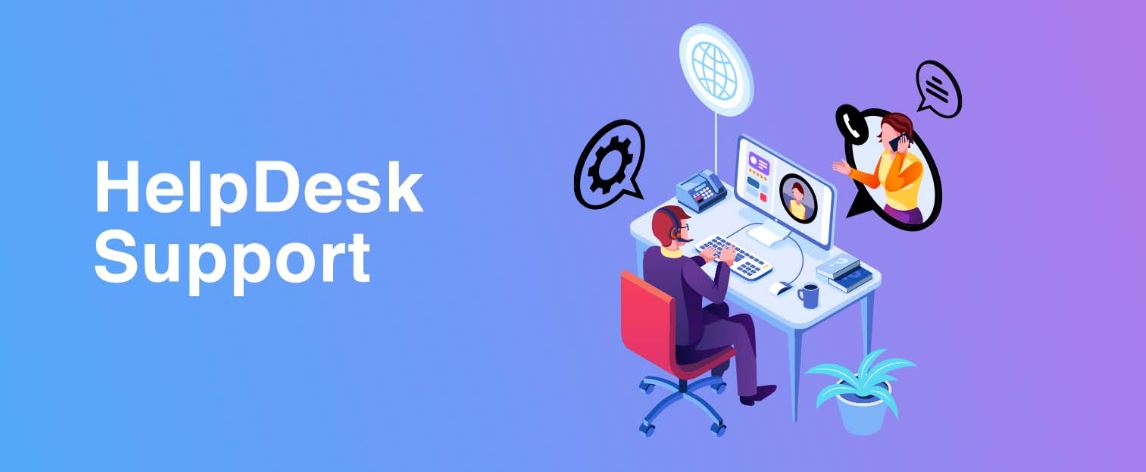What Are The Challenges Of Help Desk?
High Volume of Requests
Overwhelming Demand
One of the primary challenges of help desk support is handling a high volume of requests. As businesses grow, the number of users needing support increases, often overwhelming help desk teams. This surge can lead to longer response times and decreased service quality.
Prioritization Issues
With numerous requests coming in, it becomes challenging to prioritize issues effectively. Critical problems may get lost in the sea of minor requests, leading to significant disruptions in business operations.
Limited Resources
Staffing Constraints
Help desks often operate with limited staff, making it difficult to manage all incoming requests promptly. This staffing constraint can result in burnout among employees and high turnover rates, further exacerbating the problem.
Budget Limitations
Budget limitations can restrict the ability to hire additional staff or invest in advanced tools and technologies. Without adequate resources, help desks struggle to maintain high service standards.
Communication Gaps
Miscommunication
Effective communication is essential for resolving technical issues. Miscommunication between help desk agents and users can lead to misunderstandings, delayed resolutions, and user frustration. Ensuring clear and concise communication is a constant challenge.
Knowledge Transfer
Transferring knowledge within the help desk team and to end-users is crucial. However, inadequate documentation and lack of training can result in knowledge gaps, making it difficult for agents to resolve issues efficiently.
Complex Technical Issues
Evolving Technology
The rapid pace of technological advancement presents a significant challenge for help desks. Keeping up with new software, hardware, and security threats requires continuous learning and adaptation. Help desk agents must stay updated to provide effective support.
Diverse User Issues
Users face a wide range of technical issues, from simple password resets to complex network problems. Help desk agents need a broad skill set to handle this diversity, which can be demanding and require extensive training.
User Expectations
High Expectations
Modern users expect quick and efficient solutions to their technical problems. Meeting these high expectations can be challenging, especially when dealing with complex issues or high volumes of requests. Failing to meet expectations can lead to dissatisfaction and negative feedback.
Demand for 24/7 Support
Businesses are increasingly operating around the clock, necessitating 24/7 help desk support. Providing continuous support can strain resources and require shifts and rotations, making it challenging to maintain consistent service quality.
Role of IT Consulting in Addressing Help Desk Challenges
Strategic Planning
IT consulting firms can assist businesses in developing strategic plans to address help desk challenges. By analyzing current operations and identifying bottlenecks, consultants can recommend solutions to optimize processes and improve efficiency.
Technology Solutions
IT consulting can provide insights into the latest technologies that can enhance help desk operations. This includes implementing automated ticketing systems, AI-powered chatbots, and remote support tools. These technologies can help manage high volumes of requests, prioritize issues, and improve response times.
Training and Development
Consulting firms can offer training programs to help desk staff, ensuring they stay updated with the latest technological trends and best practices. Ongoing training and development help improve the skill set of agents, enabling them to handle a wider range of issues effectively.
Resource Management
Effective resource management is crucial for overcoming staffing and budget constraints. IT consultants can help businesses allocate resources more efficiently, identify areas for cost savings, and recommend staffing solutions that balance workload and service quality.
Communication Enhancement
Improving communication within the help desk team and with end-users is essential. IT consulting can introduce better documentation practices, knowledge bases, and communication tools to bridge gaps and enhance clarity. This ensures that issues are resolved faster and with greater accuracy.
User-Centric Approach
IT consulting firms can help businesses adopt a user-centric approach, focusing on improving user satisfaction and experience. By implementing feedback mechanisms and regularly assessing user needs, help desks can align their services to meet user expectations better.
Conclusion
Help Desk Support is essential for maintaining business operations and ensuring user satisfaction. However, it comes with several challenges, including high request volumes, limited resources, communication gaps, complex technical issues, and high user expectations. IT consulting plays a crucial role in addressing these challenges by providing strategic planning, technology solutions, training, resource management, and enhancing communication. By leveraging the expertise of IT consultants, businesses can optimize their help desk operations, improve service quality, and ensure user satisfaction. Addressing these challenges proactively ensures that help desk support remains efficient, responsive, and capable of meeting the evolving needs of users.


